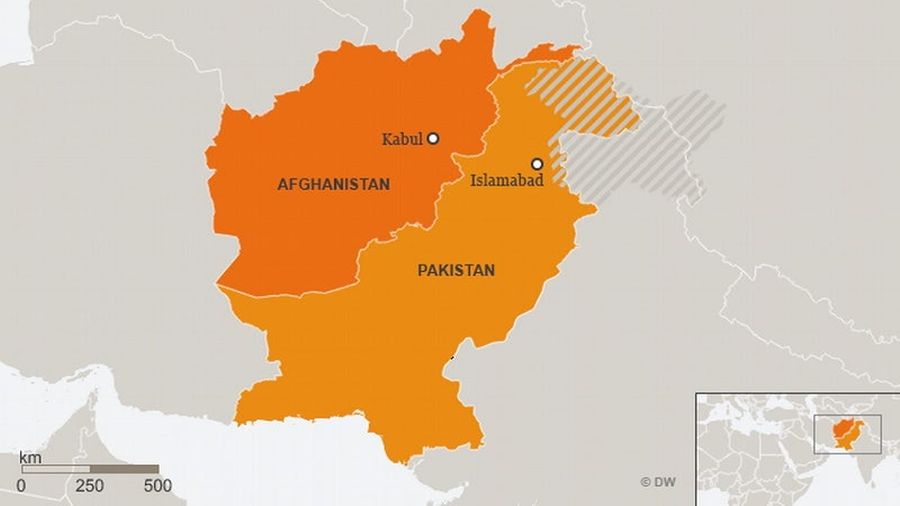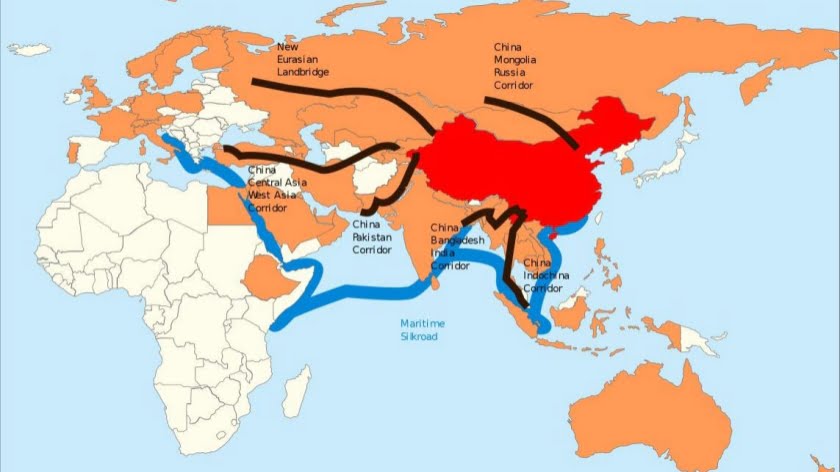Pakistan Might Be About to Launch a “Special Military Operation” in Afghanistan
The Pakistani-Taliban security dilemma is untenable and quickly approaching the breaking point, which is why Islamabad might soon seize the initiative to decisively defend itself from Afghan-emanating terrorist threats, but it’s unknown exactly how far it might go in this respect. In any case, the US is expected to support its recently restored regional proxy since it hopes to exploit this potential campaign for divide-and-rule purposes aimed at reasserting its declining unipolar hegemony over South Asia.
Credible Concerns Of An Impending Campaign
Pakistan has sent very strong signals lately that it’s seriously contemplating a “special military operation” in Afghanistan against TTP (“Pakistani Taliban”) terrorists. Its National Security Committee recently warned that “Pakistan’s security is uncompromisable and the full writ of the state will be maintained on every inch of the (sic) Pakistan’s territory.” Around the same time, Interior Minister Rana Sanaullah publicly implied that a cross-border operation is in the cards.
Adding credence to this scenario was Minister of State for Foreign Affairs Hina Rabbani Kar, who shortly thereafter confirmed that Pakistan’s anti-terrorist security concerns are its red line in relations with Afghanistan. To wrap it all up, the reputable Express Tribune quoted unnamed official sources who told them that their country will give the Afghan Taliban (simply known as “the Taliban”) the zero-sum choice of “either you are with Pakistan or with the TTP.”
The Pakistani-Taliban Security Dilemma
The background to this rhetorical build-up ahead of a potential Pakistani special operation in Afghanistan is the dangerous security dilemma between these two brought about by the first’s post-modern coup regime de facto restoring their country’s traditional alliance with America in parallel with the second continuing to provide sanctuary to the ideologically allied TTP. These direct dynamics in turn set into motion the indirect ones vis-à-vis the US and the TTP that will now be briefly touched upon.
America’s Ulterior Motives
CNN informed their audience in mid-December that “Pakistan’s Taliban problem is America’s too”, which set the narrative basis for State Department spokesman Ned Price preemptively endorsing whatever course of action Islamabad takes against the group during a press conference this week. Cynically speaking, the US seems to hope that it can exploit the Pakistani-Taliban security dilemma for dividing and ruling South Asia in pursuit of reasserting its declining unipolar hegemony over the region.
America’s drone strike against the late Al Qaeda leader in Kabul in early August was widely considered to have been passively facilitated by Pakistan allowing its traditional ally to transit its airspace in spite of Islamabad’s unconvincing denials. That development established the post-withdrawal anti-terrorist pretext for de facto restoring their military relations after the successful regime change against former Prime Minister Imran Khan, which might soon likely be leveraged in the previously described direction.
To that end, even though Pakistan has the international legal right to defend itself from Afghan-emanating TTP terrorist threats, the US might encourage its special operation for ulterior reasons related to its hegemonic plot to geostrategically reorient South Asia. Large-scale airstrikes, let alone an actual ground component (whether limited or long-term), could immediately lead to the outbreak of a larger regional war between the Taliban-TTP on one hand and Pakistan-US on the other.
Taliban & TTP Reactions To The Latest Rhetorical Escalations
Increasingly frequent Pakistani-Taliban border skirmishes prove that both have the political will to militarily defend their territorial interests as they consider them to be, which are incompatible since the Taliban doesn’t recognize the Durand Line. The Taliban is therefore expected to violently react to any major Pakistani attack against their territory, especially since it officially considers the pretext upon which Islamabad recently signaled that it might do so to be “provocative and baseless.”
As for the TTP, they reacted to this rhetorical escalation by threatening the leaders of the post-modern coup regime’s coalition. Whether in reaction to those terrorists signaling their desire to assassinate Pakistani political leaders or independently thereof, Sanaullah somewhat walked back his earlier words by saying that his country could re-engage the TTP if they return under the ambit of the constitution. The Foreign Office then shortly thereafter appeared to rubbish talk of an impending special operation.
The Best-Case & Most Likely Scenario
The mixed messages coming from Pakistan suggest either that all stakeholders aren’t yet fully on board with this course of action or that they’ve already agreed to it and are instead trying to deceive their opponents in the hopes of getting their guard down. For what it’s worth, Director of the Wilson Center’s South Asia Institute Michael Kugelman – who’s widely considered an unofficial spokesman for his partial state patron’s policies – concluded that Pakistan has “little choice but to launch military operations.”
Assessing this scenario as likely, it’s thus worthwhile wondering exactly how far it could go if it ultimately comes to pass. A “shock and awe” air campaign against TTP camps near the border could neutralize the most imminent cross-border terrorist threats but would have to be paired with nationwide operations to root out all sleeper cells in order to be successful. The US could “Lead From Behind” with intelligence and political support or take a more open approach through drone strikes.
Regardless of the speculative US role, the Taliban is expected to initiate clashes along the border in response so as to “save face” before its domestic audience, but Pakistan shouldn’t have any problems dealing with them. This sequence of events can also serve to provide a patriotic cause around which the unpopular post-modern coup regime can seek to rally the unprecedentedly divided population, but allegations or proof of US involvement could spoil the mood and possibly even exacerbate divisions.
The Worst-Case & Least Likely Scenario
The preceding two paragraphs detail the most probable extent of Pakistan’s potential special operation in Afghanistan, but it also can’t be ruled out that it might go much further than just airstrikes and doubling down on border security. There’s a chance that Pakistan – whether in collusion with its restored US overlord or on its own prerogative – decides to decisively deal with Afghan-emanating terrorist threats once and for all through a ground operation.
In that event, the most limited extent of this scenario could involve carving out a “buffer/security zone” slightly beyond the Afghan frontier while the maximum extent could see Pakistan advancing as far as Kabul in order to carry out regime change against the Taliban. Both entail considerable risks to personnel and extremely high chances of blowback, but the US-led West’s Golden Billion would likely support either scenario for their own self-interested reasons disguised with anti-terrorist rhetoric.
The two scenarios connected with a ground operation in Afghanistan could turn the vast majority of the population against Pakistan just like Russia’s own special operation over the past 10,5 months did the same when it came to the Ukrainian one. The limited scenario is comparatively more manageable in the security sense while the maximum one is less so but would be much more geostrategically impactful, though it’s impossible right now to predict whether that would be positive or negative for the region.
Pakistan would only attempt regime change against the Taliban if it already had a so-called “government-in-waiting” that it believed would be more popular among the Afghan masses, which would have to be coordinated with Tajikistan considering its co-ethnics’ influence there. Islamabad would also have to be convinced of the US’ enduring support for this effort in all respects (diplomatic, economic, military, etc.) and have a plan for implementing it quickly so that it can then withdraw.
It’s unclear whether these two prerequisites have been established, and even if they were, whether the Pakistani Establishment would have the political will to go through with such an unprecedented operation on their part seeing as how risky the entire endeavor would be. Observers should therefore regard this scenario as unlikely, but they also shouldn’t outright dismiss it either. In all probability, however, any Pakistani special operation in Afghanistan is expected to mostly focus on airstrikes.
Concluding Thoughts
The Pakistani-Taliban security dilemma is untenable and quickly approaching the breaking point, which is why Islamabad might soon seize the initiative to decisively defend itself from Afghan-emanating terrorist threats, but it’s unknown exactly how far it might go in this respect. In any case, the US is expected to support its recently restored regional proxy since it hopes to exploit this potential campaign for divide-and-rule purposes aimed at reasserting its declining unipolar hegemony over South Asia.







